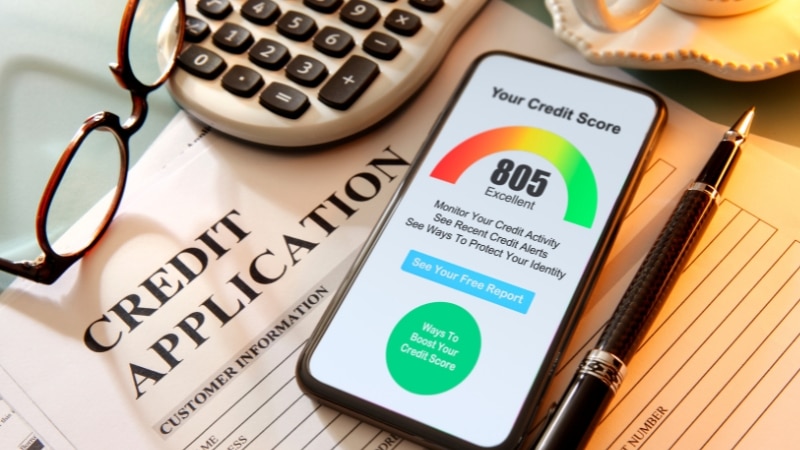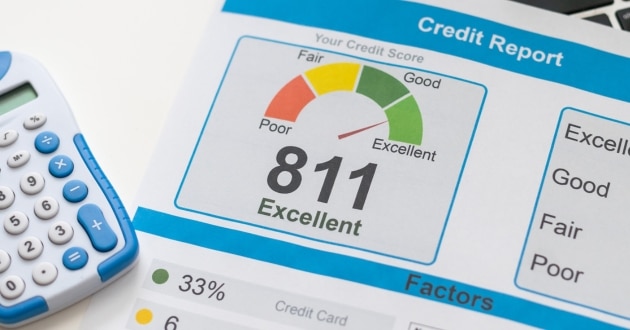How to improve credit score quickly is a common question for those looking to enhance their financial standing. A high credit score can unlock many financial benefits, including better interest rates, higher credit limits, and greater chances of loan approvals.
In today’s fast-paced world, having a good credit score is more important than ever. Whether you’re planning to buy a home, finance a car, or simply secure a favorable credit card, your credit score plays a pivotal role. Consequently, many people are eager to discover how to improve credit score quickly to take advantage of these opportunities.
Fortunately, there are effective methods to enhance your credit rating in a relatively short time. By focusing on key financial habits and making strategic decisions, you can learn how to improve credit score quickly and enjoy the benefits that come with a higher score.
Understanding Your Credit Score

Firstly, it’s essential to understand what makes up your credit score. Credit scores are typically calculated using five key factors: payment history, amounts owed, length of credit history, new credit, and types of credit used. By knowing how each factor affects your score, you can take targeted actions to improve it.
Pay Bills on Time
One of the most impactful steps in how to improve credit score quickly is to ensure that all your bills are paid on time. Payment history accounts for a significant portion of your credit score. Thus, setting up reminders or automatic payments can help you avoid missed or late payments, which can negatively impact your score.
Reduce Outstanding Debt (How to improve credit score quickly)
Another crucial aspect of improving your credit score is reducing your outstanding debt. High levels of debt relative to your credit limits can lower your score. Therefore, focusing on paying down existing balances, especially on credit cards, can quickly enhance your credit profile.
Avoid New Credit Inquiries
Additionally, avoid applying for new credit unless absolutely necessary. Each new credit inquiry can slightly reduce your score. Limiting the number of new credit accounts opened in a short period can help maintain and improve your score.
Use a Secured Credit Card
For those with poor or limited credit history, using a secured credit card can be an effective strategy. Secured credit cards require a cash deposit that serves as your credit limit. By using this card responsibly, you can build or rebuild your credit, showing that you can manage credit well.
Monitor Your Credit Report (How to improve credit score quickly)
Regularly monitoring your credit report is another key strategy in how to improve credit score quickly. By keeping an eye on your report, you can identify and dispute any errors that may be dragging down your score. Many credit reporting agencies offer free reports, allowing you to stay informed about your credit status.
Keep Credit Utilization Low
Maintaining a low credit utilization ratio, which is the amount of credit you’re using compared to your total available credit, is vital. Aim to keep your credit utilization below 30%. This shows lenders that you’re not overly reliant on credit, positively influencing your credit score.
The Impact of Credit Score on Loan Approval (How to improve credit score quickly)
When seeking loan approval, your credit score plays a crucial role. Lenders use your credit score to assess your creditworthiness and the risk of lending to you. A high credit score can result in lower interest rates, better loan terms, and a higher chance of approval. Conversely, a low credit score can lead to higher interest rates, less favorable terms, or outright denial of your loan application. Therefore, understanding how to improve your credit score quickly can be vital if you plan to apply for a loan in the near future.
Common Mistakes to Avoid When Trying to Improve Your Credit Score
Many people unknowingly make mistakes that can negatively impact their credit scores. Common errors include missing payments, carrying high balances on credit cards, applying for too many credit accounts in a short period, and closing old accounts. Additionally, neglecting to check your credit report for errors can also harm your score. By being aware of these common pitfalls, you can avoid them and take proactive steps to improve your credit score more efficiently.
How to Dispute Errors on Your Credit Report
Errors on your credit report can significantly lower your credit score. It’s essential to regularly review your credit report and dispute any inaccuracies. To dispute errors, you can contact the credit bureau that issued the report, provide documentation supporting your claim, and follow up to ensure the error is corrected. This process can help improve your credit score quickly by removing incorrect negative information.
How to Build Credit from Scratch
Building credit from scratch involves establishing a positive credit history. Start by applying for a secured credit card or becoming an authorized user on someone else’s credit card. Make small purchases and pay the balance in full each month. Additionally, consider taking out a small credit-builder loan. Over time, these actions will help you build a solid credit history and improve your credit score.
Using Credit Karma to Monitor and Improve Your Credit Score
Monitoring your credit score regularly is essential for maintaining good financial health and identifying areas for improvement. Credit Karma is a valuable tool that offers free credit scores, reports, and monitoring services. By using Credit Karma, you can stay informed about your credit status, track your progress, and receive personalized tips on how to improve credit score quickly. This resource makes it easier to understand your credit report, dispute errors, and take actionable steps towards a better credit score.
The Role of Credit Utilization in Your Credit Score
Credit utilization is the ratio of your credit card balances to your credit limits and is a key factor in your credit score. Keeping your credit utilization below 30% is recommended for a healthy credit score. To improve your credit utilization quickly, you can pay down existing balances, request higher credit limits, or open new credit accounts to increase your overall available credit.
Best Ways to Reduce Personal Debt
Reducing personal debt is a crucial step in improving your financial health and boosting your credit score. By managing your debt effectively, you can free up more resources to pay down balances, save for the future, and improve your overall creditworthiness. For a comprehensive guide on the best ways to reduce personal debt, check out this detailed resource in best ways to reduce personal debt. This guide offers practical advice and strategies to help you tackle debt efficiently and improve your financial stability.
Conclusion in How to improve credit score quickly
In conclusion, understanding how to improve credit score quickly involves a combination of paying bills on time, reducing outstanding debt, avoiding unnecessary new credit inquiries, using secured credit cards, monitoring your credit report, and keeping credit utilization low. By implementing these strategies, you can enhance your credit score and enjoy the financial benefits that come with it. A higher credit score opens doors to better loan terms, higher credit limits, and more financial opportunities, making it a goal worth pursuing.



